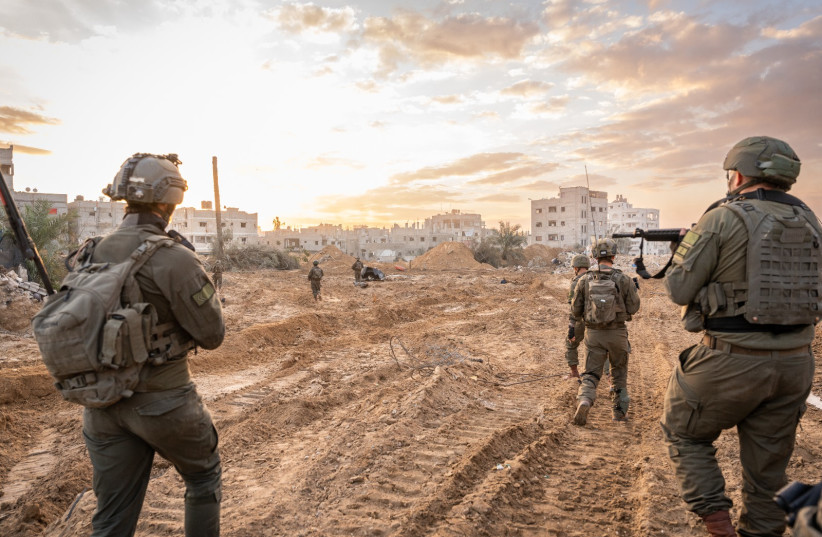
It may not be in one day nor in a solemn ceremony, but this war will end at one point. Maybe abruptly, thanks to a strenuously brokered ceasefire agreement. Or maybe it will just slowly fade into a spaced out series of raids and forays.
But it will end, and while it becomes a thing of our yesterdays, life will continue tomorrow and tomorrow and tomorrow.
Where will Israel be in the international arena, in the big game of nations?
Hopefully, Hamas will have lost its military might and its terror tools. Hopefully, smoking ruins of bunkers and tunnels will be the legacy of their perverse strategy. But if Hamas loses its arms, it will not lose its armor. Equipped and funded by Iran, sponsored and funded by Qatar, legitimized and lionized by Turkey, Hamas will still benefit from wide-ranging international support to cover all its crimes, and then some.
Israel will not be able to handle Gaza alone, nor should it. Governing Gaza and managing its residents’ everyday lives is not a mission Israel should undertake and not a burden Gazans will want to put up with. Gaza under Hamas has become a hub of international intrigue and interests, which could have made it fascinating if it wasn’t so brutally violent. The flailing Palestinian Authority, headed by a president about to retire by the force of nature and on the verge of an inescapable succession strife, will simply not do. Only a multifarious coalition will be able to conduct the Gaza Strip to a stable political and economic situation which could give some hope to its inhabitants and their neighbors.

But who will take part in this coalition of the willing?
Who can Israel trust to help run Gaza when the war with Hamas is over?
The international scene, already polarized by growing tensions among most major actors, has become untenably tense after Russia’s invasion of Ukraine. China chose to stand with its old Russian frenemy, fully supported by Iran, while the EU has taken resolute steps to distance itself from Moscow and back Ukraine, with Turkey playing intermittently both cards.
Who could be inclined to engage in cross-alliance cooperation? And who could Israel trust?
It seems inevitable that Gazans will reject any intervention by actors not deemed legitimate. At the end of the day, they could confer legitimacy only to fellow Arabs, which, after all, makes sense. Clearly, the implication of moderate regimes such as Egypt, Jordan, the UAE, Morocco, Bahrain, and Saudi Arabia will be necessary, whichever form and shape their contribution may take. But to say that they are currently eager to get involved would be quite the delusion.
The EU had officially stated its support for the demilitarization of Gaza back in 2014, during Operation Protective Edge. And its leaders used to repeatedly lament that they “want to be a player, not only a payer.” But to presume it would readily take responsibility for administering Gaza is to underestimate the sad and sorry legacy of the ill-fated EU-BAM, not to mention endemic internal dissent and disagreement regarding the Israeli-Palestinian conflict, among so many other issues.
Be the composition of the international involvement as it may, one thing is vital: It would need not only to garner legitimacy from Palestinians but also to provide security guarantees to Israel. Disregarding or minimizing this aspect would condemn any initiative to immediate failure. After the atrocities of October 7, Israel can only take zero risks in any future arrangements.
This is not one more round of trading deadly punches, such as we’ve experienced in the past. Those were bad enough and totally misunderstood by most Western observers, who failed to fully realize the real intent by Hamas to annihilate Israel by all possible means, including the “martyrdom” of their own.
No, this monstrous assault changed all the rules. If there is to be any prospect for Gaza that is not violence, it has to rely on staunch and credible international guarantees for Israel.
This is the sine qua non key for any sustainable arrangement that we should seek if we want to see a future of compromise and cooperation among all children of Abraham. ■
The writer is director of international relations and foreign policy adviser to the Jewish Agency chair.
